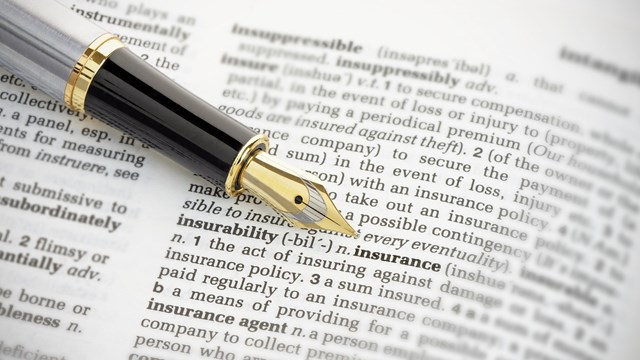Earthquake insurance is very common in California, for obvious reasons—but what about in New England? Tremors may be rare here, but nonetheless, they do happen. And they can cause damage to condominiums and other structures.
On October 16, 2012, for example, residents of Hollis Center, Maine reported that a magnitude 4.0 earthquake centered in southern Maine created the sensation of a train running through their homes. The earthquake was widely felt all across New England—and into New York, New Jersey and Canada.
In fact, earthquakes are nothing new in the Northeast. In November of 1755, a report in the Boston Weekly News-Letterdescribed “a most terrible Shock of an Earthquake: The conditions were so extreme as to wreck the Houses in this Town to such a degree that the Tops of many Chimnies, and some of them quite down to the Roofs, were thrown down.”
It’s likely that in the 1700s, the owners of those homes simply picked up the debris and rebuilt those roofs and chimneys. Today, though, homeowners—and condominium managers—facing such destruction would undoubtedly speed-dial their insurance agents to see how much of the damage is covered. And some just might find that they never did buy earthquake insurance—or coverage for a host of other potential problems.
As with anything else, there are some insurance policies you’ve just got to have, some it’s nice to have, and some you probably don’t need. The challenge is to know which policies fall into what categories.
Begin with Basics
Sean Daly, CPCU, of Affiliate Insurance Managers in Warwick, Rhode Island, says earthquake coverage isn’t an absolute necessity for multifamily communities in New England, but certainly falls into the “maybe we should” category. The problem, as with so much in life, is that it comes with a price tag. After a tremor rumbled through the area, he notes, an association did call to ask about earthquake insurance—but after weighing the cost of a policy against the likelihood of a bigger quake, decided to take their chances with Mother Nature.
“When a condominium is formed under Massachusetts general law, there are certain requirements for insurance based on the condominium documents and there are also optional coverages such as to earthquake, flood, excess liability etc, that most associations should consider choosing to offer more protection to their valuable properties,” explains Christopher Prudente, risk management consultant at the John J. Prudente Agency in Weymouth, Massachusetts. “Without many of these additional coverages, the associations are basically self-insuring for them and put their association in financial distress in the event that they were not able to fund these type of catastrophes.”
While some associations may consider earthquake insurance a “nice to have,” other types of coverage are absolutely necessary. Topping the list, Daly says, are property liability and D&O—directors and officers—insurance. D&O, he notes, “may be the least expensive, but it’s the most important” insurance for associations. “A lot of folks at non-profits, even for-profits, don’t realize they are personally liable” for their decisions. A D&O policy “gives them a safety net before their personal assets are in play.” And while the coverage may come as part of an overall package, Daly says it’s wise to get a policy that may cost more but provides better “defense coverage.”
“Whether you have a co-op, condo, single-family homeowners’ association, time share or a commercial association, if you peel back the onion, there is a common denominator,” says Joel Meskin, vice president for community association and risk management for McGowan Program Administrators, a nationwide company. That common denominator is that there are both individual owners with their own property to protect, and the group of owners with the commonly-held property to protect. “So, what does an association need, and what does a unit member need? They’re two separate things.”
The individual owner should have an HO6 (homeowner’s) policy and the association should have coverage for the property that is of common interest to all members. “When you’re a trustee and you’re purchasing insurance for the association, you have to put the interest of the association’s interest above your own personal interest,” he says. At the same time, whether it’s required or not, unit owners really should have an HO6 policy.
Beyond Those Basics
When he lived in a single-family home in California, Meskin notes, “I never once bought earthquake insurance… and I was very lucky. It’s a very different decision when you live in a community association. So in Massachusetts you need windstorm insurance, flood insurance…. You think, ‘it’s so much money.’
“But when I sit down with a board, I say, ‘here are your governing documents. Where in the documents does it say anything about saving the association money?’ Their job is to protect the assets of the association.” In Meskin’s opinion, “If they have the exposure, I don’t think there’s anything they really can do without.”
In a flood zone designated by the Federal Emergency Management Agency, flood insurance for common-interest communities is expensive, but mandatory. Otherwise, residents buying into such a community won't be able to get an individual mortgage, professionals caution.
Elsewhere, flood insurance is optional, and will cover you in the event of a loss. After Superstorm Sandy hit the east coast in October of 2012, many condos located outside the flood zone had extensive water damage—but without flood insurance, their property policies didn’t pay because the damage was said to be caused by flood, not wind-driven rain.
Not all threats are as obvious as an earthquake or a slip-and-fall lawsuit. Forward-looking communities should also explore cyber-liability insurance, recommends Scott McGinness, vice president of commercial sales at Gregory & Appel Insurance, Inc., a nationwide insurance agency based in Indianapolis, Indiana.
“A community association or management company that has personal information of its residents on file is at risk of a security breach,” he says. “This involves forensic work to figure out who the victims are, and buy them credit monitoring for a period of time. In addition to these first-party expenses, there is the possibility of lawsuits.” Fortunately, McGinness says, with growing exposure to data insecurity, the number of companies offering cyber-liability insurance is increasing. “It’s a good product to look into from an insurance standpoint and a prevention standpoint as well.”
And, Prudente says, “We highly recommend at least to increase general liability limits or add a excess liability(umbrella) policy to offer more protection in this litigious society we live in.”
Controlling Costs
“To many boards think about only price and not coverages,” Prudent laments. “I see the biggest mistakes occur when the boards do not listen to the manager or the agency that specializes in condominiums that they hire. They decide not to take his or her recommendation of coverages and recommendations of the agency or agent versus just looking at the pricing… It’s a good idea for manager to be more involved with the final decision when it comes to implementing a risk management program that fits each association’s needs and budget.
“Insurance is all about risk,” says Prudente. “The best way to spread risk is by using deductibles to offset smaller losses, and transferring some of the risk onto the unit owner policies, while saving some overall premium. The best agents know how to use these deductibles to spread risk and to keep premiums steady for the long haul.”
Moving the per-unit deductibles onto the property policy to make the unit owner responsible for the master policy deductible is a good idea, Daly says. “The HO6 will then pay that deductible,” he says. The downside is that the move may require a change to the association’s bylaws. “It’s not always easy, but it’s well worth it,” Daly says. “What that does is greatly diminish the size of the claim sitting on the association’s loss history, and the association stays more insurable going forward.”
Another way to keep costs down, he adds, is through good risk management —things like making sure all contractors have insurance (and list the association as an additional insured), making sure that “snowbirds” leave the heat at an appropriate temperature to avoid burst pipes, having a water heater replacement program, and instituting a “leave a key” program so that managers can access a unit in an emergency.
Insurance professionals agree that an association’s review of its insurance coverage should begin with its insurance agent. If the association has a property manager, that individual should organize and participate in the review. “I’ve never seen a set of governing docs that do not authorize the board to seek help from experts,” Meskin adds, noting that for some things, it’s simply best to go to a professional for advice. “Ignorance is bliss—until there’s a loss,” he cautions.
Pat Gale is associate editor of New England Condominium. Freelance writer George Leposky contributed to this article.







Leave a Comment